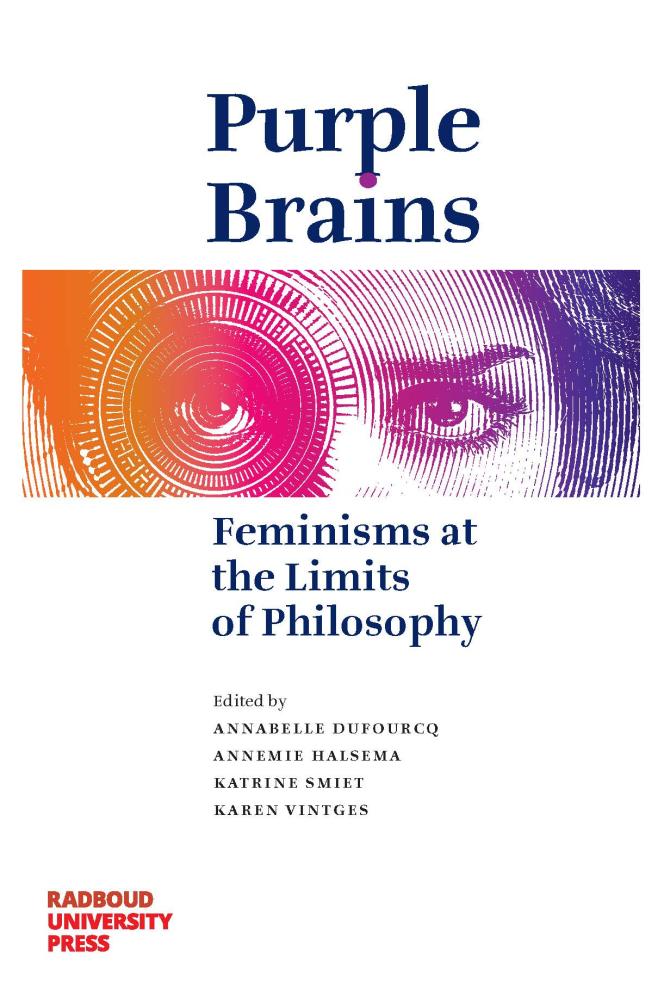Purple Brains: Feminisms at the Limits of Philosophy
Keywords:
feminist theory, feminist philosophy, gender theory, race, racism,, sexism and misogyny, oppresssion and resistance, environment, climate change, neuropsychology, brain theoriesSynopsis
Feminist philosophy seems to always exceed its own limits – it is dynamic, shifting, and in dialogue with other academic disciplines. The adjective “feminist” marks not so much a specific subfield of philosophy or topic that is studied, but a political sensibility, an engagement in practicing philosophy. The playful title ‘Purple Brains’ indicates a thinking that goes beyond established binaries, notably the gender binary signified by the colors pink and blue.
As feminists, we face the challenge of finding our own place and inventing ways to understand and overcome discrimination and exclusion. Situated within a world we want to change, feminists cannot afford to reject unlikely interlocutors out of hand, but must instead engage in interdisciplinary, intergenerational and cross-fertilizing dialogues.
This volume brings together 19 articles that practice feminist philosophy through an engagement with the work of Dutch philosopher Veronica Vasterling. As one of the pioneering women philosophers active in Dutch academia since the mid-1980s, Vasterling explicitly expanded her outlook to embrace feminist themes and authors. She stands out as a prominent figure in the exploration of the boundaries of feminism through critical dialogue across multiple perspectives. Her work not only explores neuropsychology through a feminist lens but also extends into domains such as critical phenomenology of gender and race, critical hermeneutics, and subjects including sexual difference, the philosophical oeuvre of Hannah Arendt, and that of Judith Butler.
Chapters
-
Introduction
-
Room for ThoughtSymbolic Space and Narrative Experience
-
Vulnerability and ViolenceTransgressing the Gender Binary
-
What Do Women Have to Do with It?Race, Religion, and the Witch Hunts
-
Power, Sex, and MythBeauvoir, Paglia, and Peterson
-
In Praise of Ambiguity
-
The Gender That Is NoneSome Daring Reflections on the Concept of Gender in Beauvoir, Irigaray, and Butler
-
The Easy DifferenceSex in Behavioral Ecology
-
Sex-Gender in Life-Science ResearchConceptual Renegotiations and an Enactivist Vision
-
His and Hers Healthcare?(Strategic) Essentialism and Women’s Health
-
Cis- and Transgender IdentitiesBeyond Habituation and the Search for Social Existence
-
Light and DarkIntersections of Gender and Race in Butler and Lugones
-
Rereading Eichmann in Jerusalem
-
‘Amor Mundi’ Threatened?War and the ‘Darkness of the Human Heart’
-
At Home in the WorldHannah Arendt’s Transposition of Saint Augustine’s Concept of Love
-
Arendtian Understanding and Feminism
-
From the Politics of Compassion to ImaginationHannah Arendt on Collectivized Affect
-
From Animal Laborans to Animal AgoraHannah Arendt and the Political Turn in Animal Ethics
-
Climate Change as an Existential ThreatEnvironmental Politics in the Shadow of Nihilism
-
Puppets’ UprisingPassive-Active Ethics Within the Trap of Play

Published
Series
Categories
License

This work is licensed under a Creative Commons Attribution-NonCommercial-NoDerivatives 4.0 International License.


